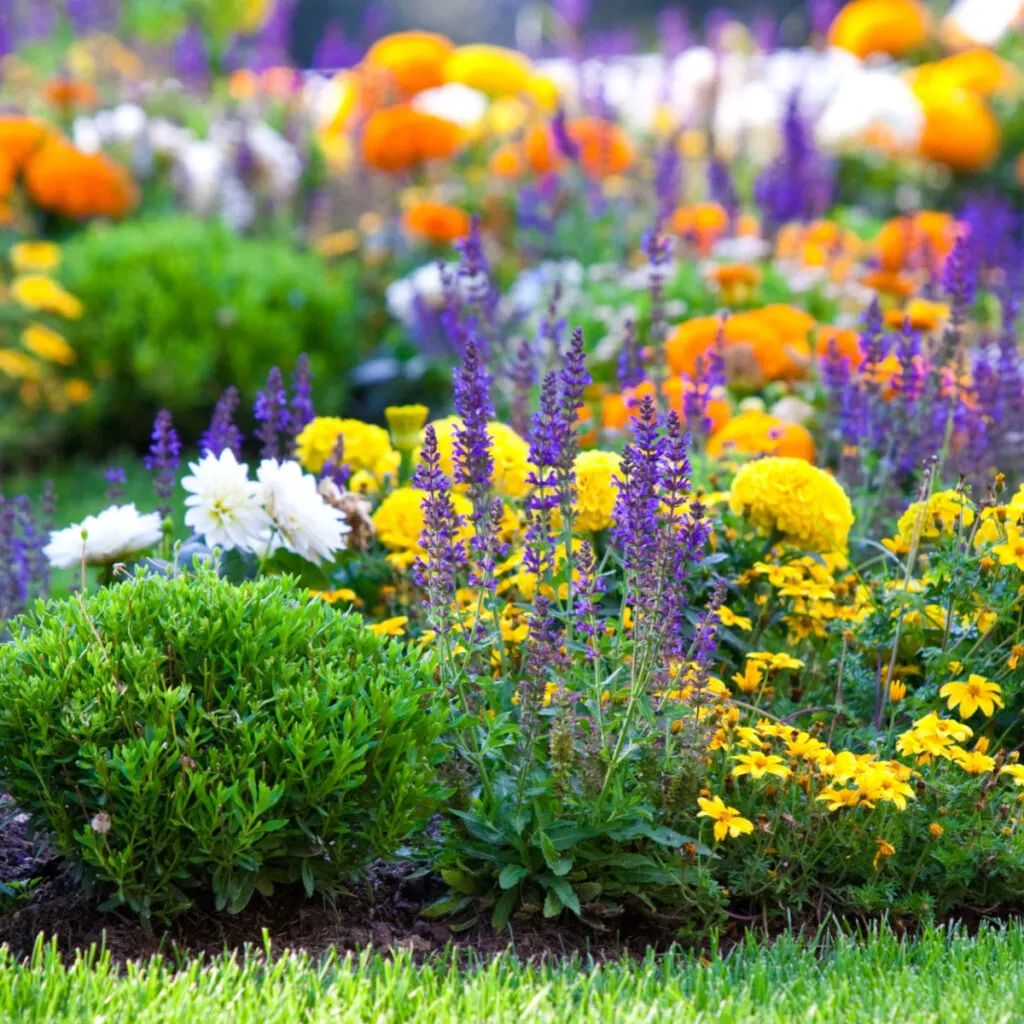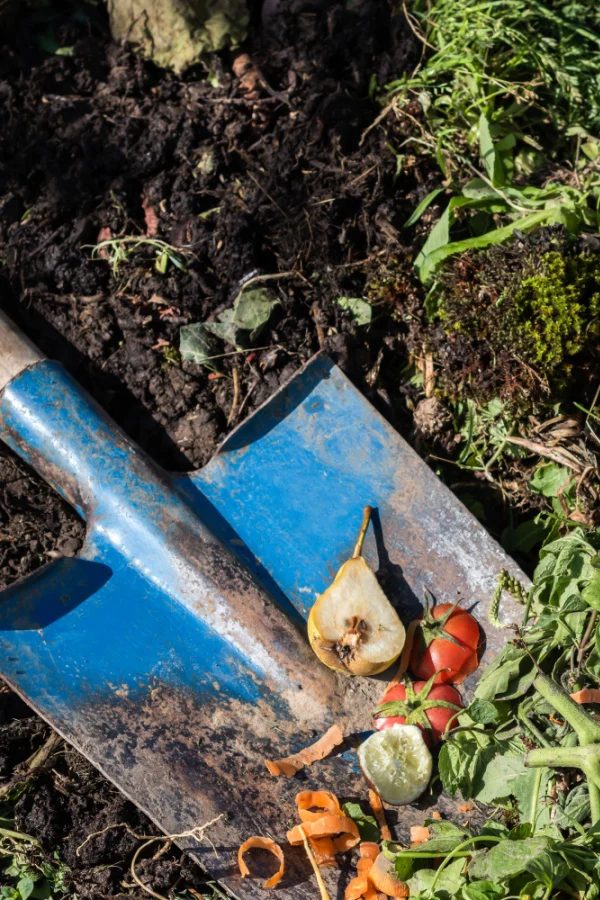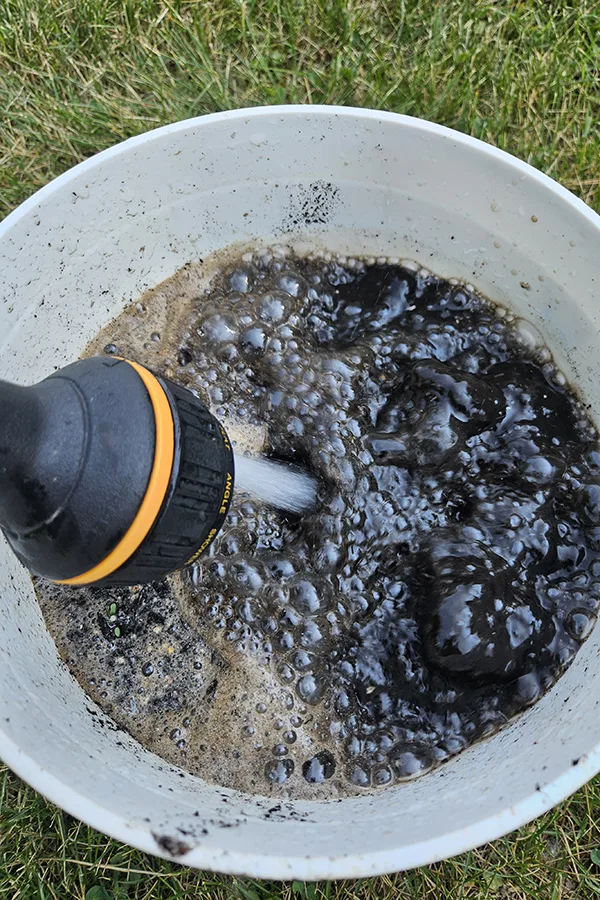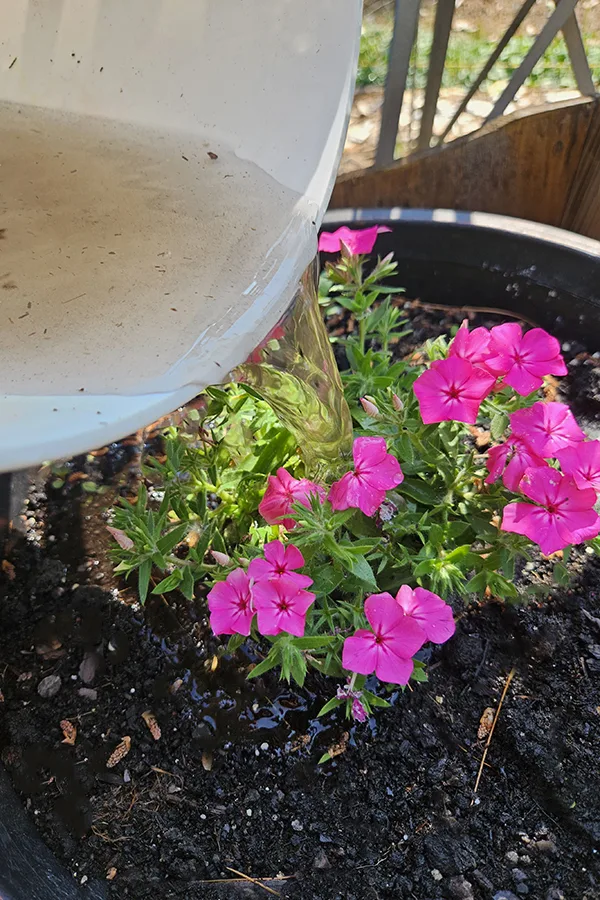Compost tea is one of the best ways to fertilize your flowers – not only giving you amazing plants with incredible blooms, but doing so naturally. Even better, it can be extremely inexpensive to make. In fact, if you have your own compost pile, you can make it for free!
Compost tea is a power-packed liquid you can create fast and easy by combining compost with water. It’s natural, safe for flowers and other garden plants, and most importantly, full of the vital nutrients and resources that plants need.
Not only is compost tea easy to make, but it’s 100% organic. It has a good balance of quick absorbing nutrients, which make it perfect for powering your annual and perennial flowers all season long!

As flowers bloom throughout their growing season, they use up a lot of resources and nutrients in the soil. If those resources aren’t replenished, the plants will start to suffer and eventually fade altogether.
That’s where applying fertilizer to your plants can make all the difference. Essentially, fertilizers provide the extra energy and power your flowers need to grow and produce blooms. And when it comes to powering them fast and naturally – nothing can beat compost tea!
Why Compost Tea Is Great For Annual & Perennials – How To Fertilize Flowers With Compost Tea
Why is compost tea such a perfect fertilizer for flowers? Just think of all of the materials that go into a compost pile. Plant byproducts, kitchen scraps, yard and farm animal waste, etc. – the list goes on and on.

All of those materials are then broken down by healthy bacteria and beneficial microorganisms over time. What’s left is a rich and fertile nutrient-packed product that is teeming with energy. Even better, that energy is easy for plants to absorb. Especially when allowed to sit and soak into water to become compost tea!
How Compost Tea Works To Fertilize Flowers
Compost tea works by powering flowers in two powerful ways. First, the nutrients within compost tea are able to quickly be absorbed by the flowers via their roots. As the tea soaks into the soil around the plants, the roots can easily absorb the liquid power and send it all throughout the plant.
The second way compost tea works is through the plant’s leaves. Unlike traditional fertilizers, compost tea will not burn or harm the foliage of plants if it gets onto them. In fact, it actually benefits them.
If you spray commercial synthetic fertilizers onto plants, especially in the hot mid-afternoon heat, there’s a high chance you will end up burning the plant’s delicate foliage. With compost tea, however, there is no worry of that happening. The flowers’ foliage will simply soak up the low-dose natural fertilizer for an instant boost of energy.
At the same time, compost tea will not overpower your annuals and perennials like conventional fertilizers can. When you use full doses of synthetic fertilizers, the plants will often focus their energy on creating new foliage all at once as opposed to producing new blooms slowly.
Compost tea, however, gives your flowers a steady, low dose of energy so plants can use the nutrients as needed. It really is the perfect all-natural fertilizer!
How To Fertilize Flowers With Compost Tea
Creating Compost Tea
The good news is that creating compost tea at home doesn’t take any special tools or expensive equipment. All you need is a 5-gallon bucket, a stirring stick, a strainer, and compost and water.
Fill the 5-gallon bucket about a third of the way full with compost. If you don’t have your own homemade compost on hand, you can purchase store-bought compost. Just make sure that it is aged and has been broken down prior to purchasing. Affiliate Product Link: Charlie’s Bagged Compost

Add enough water to fill up the remainder of the bucket, leaving about an inch or two at the top. Stir the mixture for a few minutes to get the leaching process started. Allow the compost and water to seep together for at least five days, but continue to stir a couple of times each day.
After five to seven days, strain the solids out and return to your compost pile. There, the leftovers can recharge and become great compost again. Yu are now ready to use the remaining liquid to power your annuals and perennial flowers.
The tea should be good for a few months in a sealed container. Just be sure to stir it up before using. If you want to learn how to easily make your own compost right at home, check out our article : “Learn How To Compost Like A Pro”.
Applying Compost Tea – Fertilize Flowers For More Blooms!
To use compost tea, add the liquid to watering can, or a handheld or backpack sprayer. The latter is nice when you have several annuals and perennials to fertilize at once. (Product Link: D.B. Smith Field King Backpack Sprayer)
For annuals, apply the compost tea every seven to ten days. Use the compost tea just as you would if your were watering your plants. This low and slow fertilizer will be the perfect amount to keep plants in a constant supply of nutrients without overpowering or overwhelming plants.

For perennials, apply the compost tea every two to three weeks. Since perennials aren’t as heavy of feeders as annuals, they typically don’t require as many nutrients and can go a bit longer between feedings.
Be sure to apply the compost tea not only at the base of the flowers but also all over their foliage as well. Aim for around a quarter to half a gallon per container plant, depending on the container and plant size. For flowerbeds, just water plants as you normally would.
Try to apply the compost tea early in the morning or later at night. This helps to ensure that the moisture won’t immediately evaporate with the sun’s rays during the heat of the day.
By using this 100% natural fertilizer for your annuals and perennial flowers, you will help to ensure that they have a steady dose of nutrients to stay blooming strong all growing season long. All while saving big on fertilizing costs!
Follow Our Facebook Page For Even More Great Tips! Simple Garden Life Facebook Page
Simple Garden Life is a website dedicated to keeping gardening fun, simple and enjoyable! We publish two new articles each week along with a new garden podcast episode every two weeks. This article may contain affiliate links.
